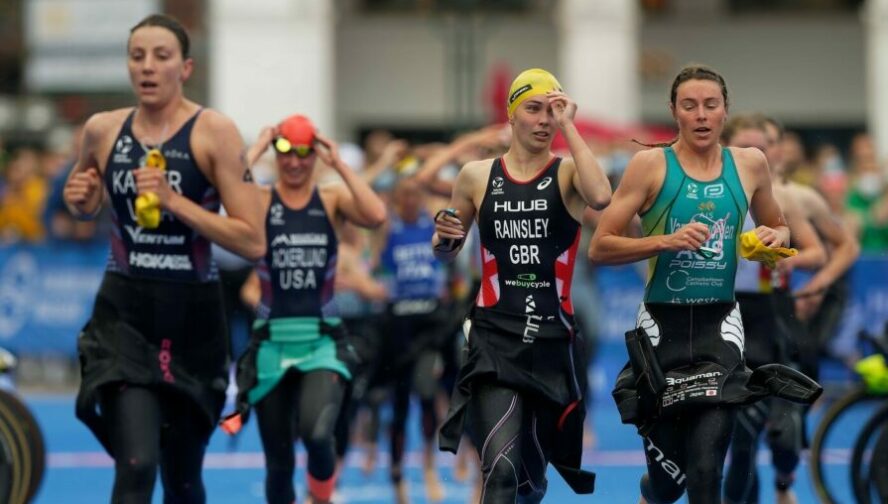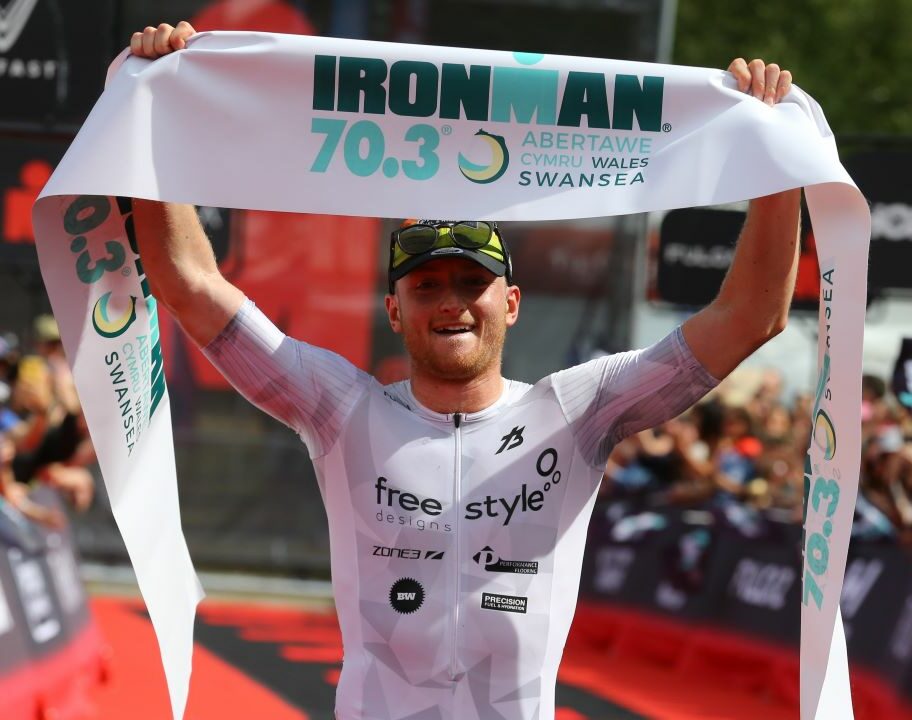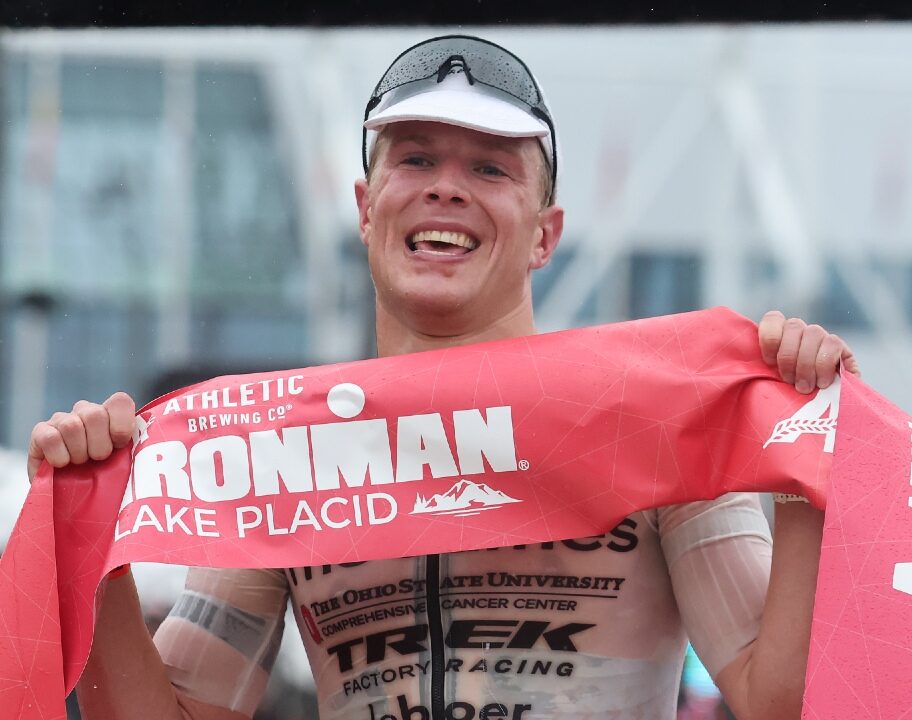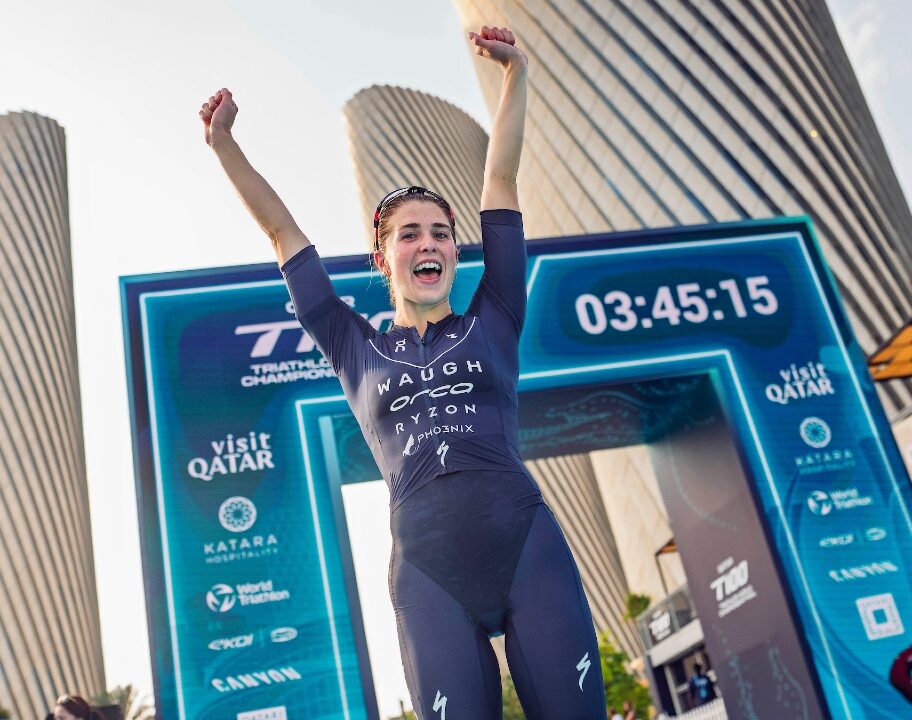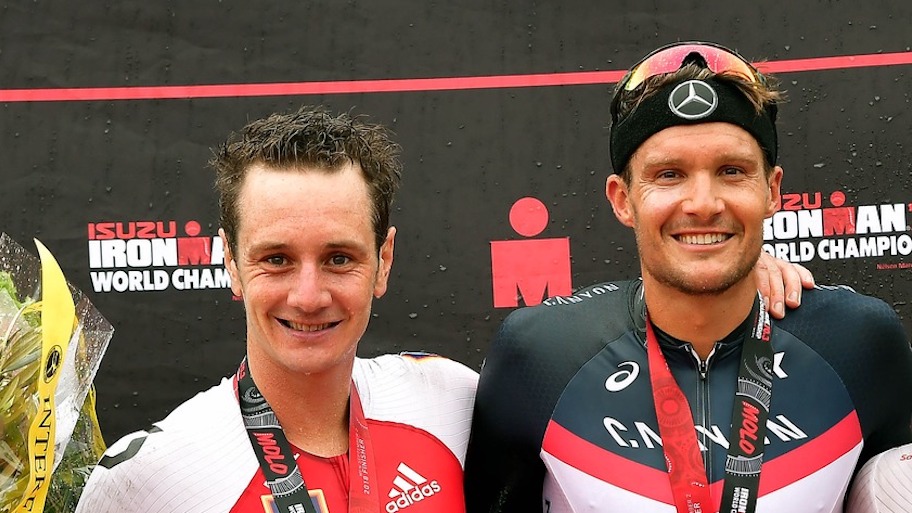Sian Rainsley recently finished fourth at Super League Triathlon’s Arena Games in Singapore, just weeks after a sixth-placed finish in London. She is now targeting success in both Super League and the WTCS in 2022.
Next up on the calendar is WTCS Leeds on June 11, her home race. And there’s also the chance of a Commonwealth Games berth for the 25-year-old.
But in 2018 she was told her elite triathlon career was over after she was diagnosed with Crohn’s disease.
On what is IBD (Inflammatory Bowel Disease) Day, Rainsley tells her story.
‘Lowest point of my life’
“At first I had no idea how Crohn’s would impact me,” said Rainsley, who is currently ranked fourth in the World Triathlon Championship Series (WTCS), of her diagnosis.
“It wasn’t until 2018 when I had a massive flare up that it all really hit home.
“I was hospitalised for a few days with it, and that was when the doctors told me that it would be impossible to continue into elite sport – especially an endurance sport like triathlon.
“It was the lowest point of my life. Without the love and support of friends and family, who knows where I’d be now.
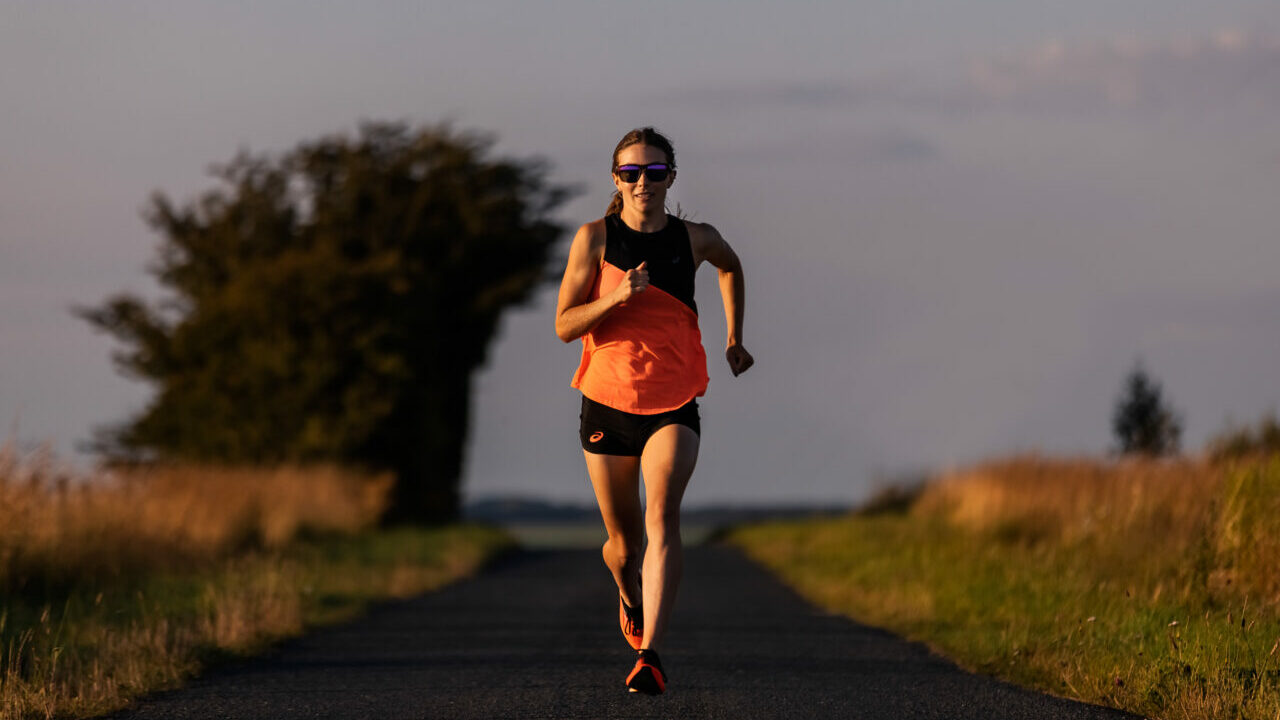
[Credit: Portfolio Sport]
Building back confidence
“It took me a while, but over the next two years I built back my fitness, but more importantly my confidence working with coaches and dieticians that understood my condition.”
When COVID hit, Sian’s plans to turn pro were once again delayed. She added, “It was yet another knockback. I honestly wondered if it was ever going to happen. But in 2021 I made the move into the pro senior ranks and have never looked back.”
Crohn’s disease is a lifelong condition which causes inflammation to large parts of the digestive system which can have a debilitating effect on an individual’s standard of life.
Over 300,000 people in the UK are known to be living with the disease. Alterations to diet and medications can help lessen the symptoms for many, but to continue competing within elite sport is another challenge entirely.
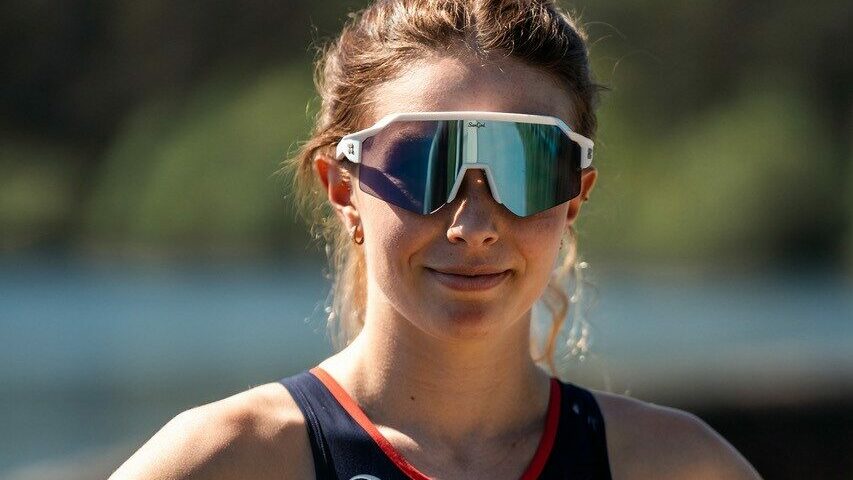
“When it comes to training and racing, I have to focus on the same things as every elite athlete, just some are more important and need to be adapted for my training.
“I have to be acutely in tune with my body and recognise the signals that can lead to a flare up. If I’m feeling run down, I can’t just push through it, I need to rest and err on the side of caution.
“I therefore factor in more sleep, more recovery time, and manage my intensity level more based on how my body is reacting, rather than sticking to a concrete training programme.
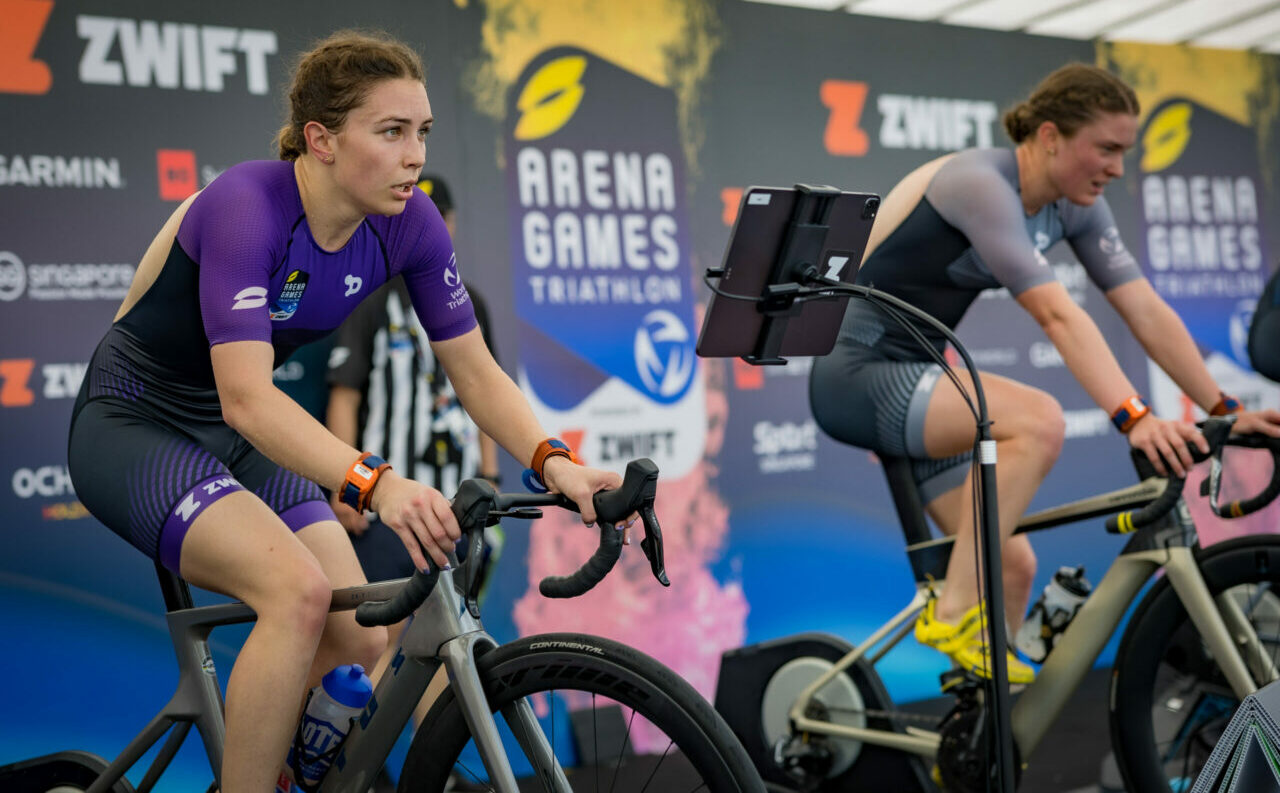
“Fuel and hydration are also key. For this I work with a British Triathlon nutritionist to manage my diet and swear by recovery protein shakes.
“Crohn’s can also affect my muscle recovery. I suffer from DOMS to a much greater extent than others. In extreme circumstances I’ve even experienced Exertional Rhabdomyolysis, or muscle breakdown, where my body uses my muscle as a source of fuel.
“It’s a real balance for my training with flexibility being at the heart of my strategy. I have to push myself, but also be sensible with how hard I go.”
